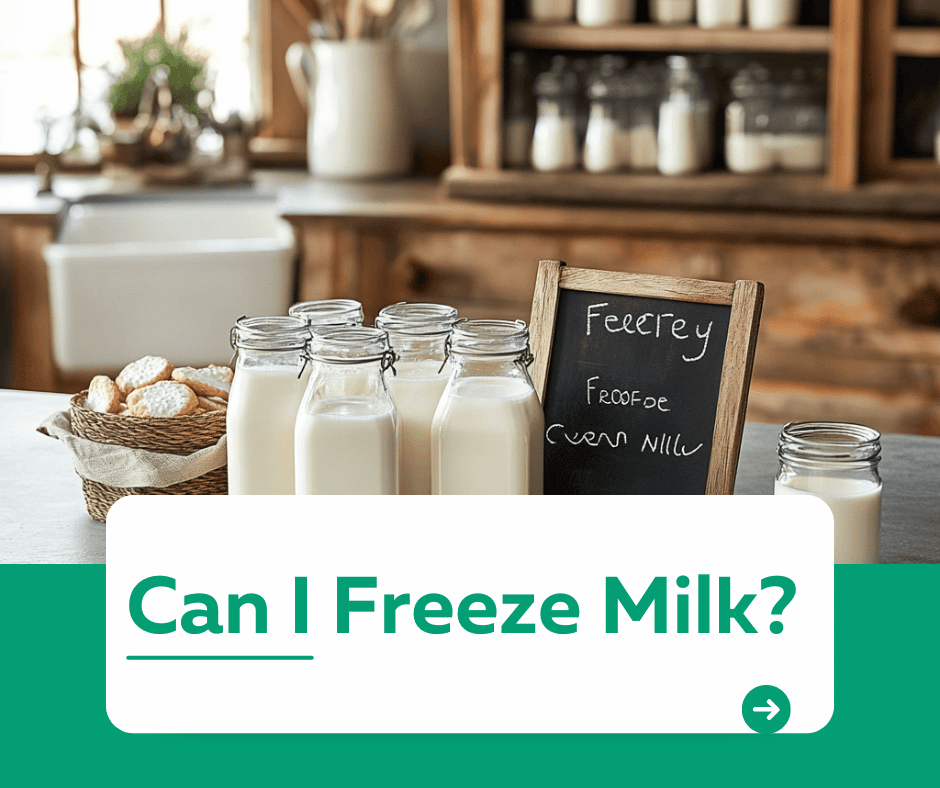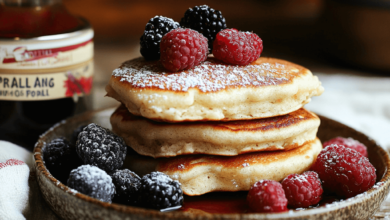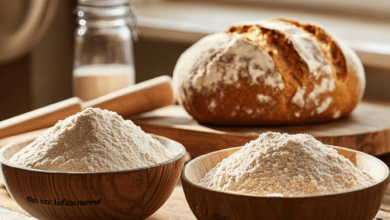Can I Freeze Milk?

Introduction
“Can I freeze milk?”
Freezing milk is a practical solution to avoid waste, especially when you have more milk than you can use before it spoils. However, not all types of milk freeze equally well, and certain precautions are necessary to preserve its quality. This article explores whether you can freeze milk, how to do it, and how to use it effectively after thawing.
1. Can You Freeze Milk?
Yes, milk can be frozen, but the results vary depending on the type:
- Dairy Milk: Freezes well but may separate when thawed. Stirring or shaking can restore its texture.
- Plant-Based Milk: Almond, soy, and oat milk can be frozen but may experience texture changes.
- Heavy Cream or Half-and-Half: Can be frozen but may not whip or blend as smoothly after thawing.
Tip: Whole milk tends to separate more than skim milk due to its higher fat content.
2. How to Freeze Milk
Freezing milk is straightforward, but following these steps ensures the best results:
- Use Freezer-Safe Containers:
- Pour milk into an airtight container or freezer bag, leaving room for expansion.
- Label and Date:
- Write the freezing date to keep track of freshness.
- Avoid Freezing in Original Packaging:
- Milk expands when frozen, so rigid containers may burst.
Pro Tip: Freeze milk in smaller portions for easier use later.
3. How Long Can Milk Be Frozen?
- Milk can be stored in the freezer for up to 3 months.
- For the best quality, use it within 1–2 months.
4. How to Thaw Frozen Milk
Thawing milk correctly is essential to preserve its quality:
- Refrigerator Method:
- Place the container in the fridge and let it thaw slowly over 12–24 hours.
- Avoid Room Temperature Thawing:
- This can encourage bacterial growth.
Tip: Shake or stir the milk after thawing to redistribute the fat and solids.
5. How to Use Frozen Milk
Thawed milk works best in cooking and baking, as the texture may change slightly.
- Best Uses:
- Smoothies, soups, casseroles, pancakes, and baked goods.
- Avoid: Using thawed milk for drinking if the texture or flavor has changed significantly.
6. Things to Consider Before Freezing Milk
- Flavor Changes:
- Freezing may alter the flavor slightly, especially with plant-based milk.
- Texture Changes:
- Milk may separate upon thawing, but this doesn’t affect its safety.
- Freshness:
- Only freeze milk that is fresh and not close to its expiration date.
Conclusion
Freezing milk is a practical way to extend its shelf life and avoid waste. While texture and flavor may change slightly, frozen milk is perfectly safe to use in cooking, baking, and other recipes. By following the proper freezing and thawing techniques, you can make the most of your milk supply.
For more kitchen tips and food storage advice, visit our Kuestion.com.



